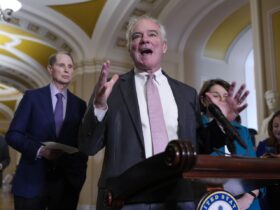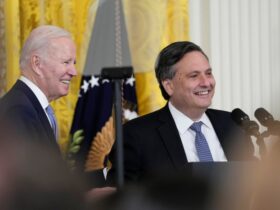Your support helps us to tell the story
From reproductive rights to climate change to Big Tech, The Independent is on the ground when the story is developing. Whether it’s investigating the financials of Elon Musk’s pro-Trump PAC or producing our latest documentary, ‘The A Word’, which shines a light on the American women fighting for reproductive rights, we know how important it is to parse out the facts from the messaging.
At such a critical moment in US history, we need reporters on the ground. Your donation allows us to keep sending journalists to speak to both sides of the story.
The Independent is trusted by Americans across the entire political spectrum. And unlike many other quality news outlets, we choose not to lock Americans out of our reporting and analysis with paywalls. We believe quality journalism should be available to everyone, paid for by those who can afford it.
Your support makes all the difference.
Sir Keir Starmer and Rachel Reeves will both face questions from MPs on Wednesday as Donald Trump prepares to announce major new tariffs that could derail their economic plans.
The US president is expected to unveil sweeping tariffs at an event at the White House around 9pm UK time, in a move he has dubbed “liberation day”.
Ministers are still hopeful of securing a deal with the US that would provide some protection from the import taxes, but Sir Keir acknowledged that “the likelihood is there will be tariffs” on UK exports.
Before Mr Trump’s announcement, Sir Keir will face MPs at Prime Minister’s Questions while the Commons Treasury Committee will grill the Chancellor on last week’s spring statement, but is sure to face questions about what the tariffs will mean for her plans.
Economists at the Office for Budget Responsibility have warned that US tariffs could eliminate Ms Reeves’s “headroom” against her debt target, requiring more spending cuts or tax rises to meet the rules she has set herself, as well as knock up to 1% off the size of the economy.
Meanwhile, analysis from the Institute for Public Policy Research (IPPR) suggested tariffs on car imports would put 25,000 UK jobs at risk and “completely destabilise the UK car manufacturing industry”.
Although a deal is unlikely to be reached before Mr Trump’s announcement, UK negotiators are reported to be pursuing an agreement with the US focused on technology.
Such a deal is said to include possible changes to the digital services tax – which imposes a 2% levy on the revenues of several major US tech companies – in exchange for a carve-out from the tariffs.
Ministers have refused to deny that changes to the digital services tax are being considered.
On Tuesday evening, Treasury minister James Murray said that he would not give a “running commentary” on negotiations, but added the “principle” of any decision would be “businesses paying their fair share”.
The Liberal Democrats, who have been strongly opposed to any changes to the digital services tax, instead urged the Government to form a “united front” with Canada and the EU, saying Labour’s approach of “cosying up to Trump” had failed.
Calum Miller, the party’s foreign affairs spokesman, said: “Despite weeks of refusing to criticise Donald Trump’s damaging behaviour, it’s now increasingly apparent that the Government will not secure a carve-out for the UK ahead of Trump’s global tariff war.
“Trump has shown himself to be an unreliable partner on the economy. No-one, not even the US’s oldest allies, are safe from the economic harm reaped by this White House.
“We need to end this trade war as quickly as possible. That means working with our Canadian and European allies in a united front against Trump, including retaliatory tariffs where necessary – as well as negotiating a bespoke new customs union agreement with the EU to better protect British businesses.”
But Conservative leader Kemi Badenoch has said the Government should not retaliate, telling LBC on Tuesday that a trade deal was the “best way” to avoid tariffs and that retaliation would “make everyone poorer”.
She said: “This is a time for significant diplomacy and showing that actually, if you put tariffs on, the people who will suffer aren’t just our exporters but also the American consumer who will have to pay more.”
It is unclear what Mr Trump will announce on Wednesday, but his administration views the application of VAT rate as discriminating against US goods and could respond with a 20% tariff on imports from the UK.
Mr Trump has already announced a 25% import tax will be introduced on all cars imported to the US, a measure which will be a blow to the UK’s automotive industry.
Some 16.9% of UK car exports were to the US last year, representing a total of more than 101,000 units worth £7.6 billion.
Tariffs on steel and aluminium imports, including from British firms, are already in place.
















Leave a Reply